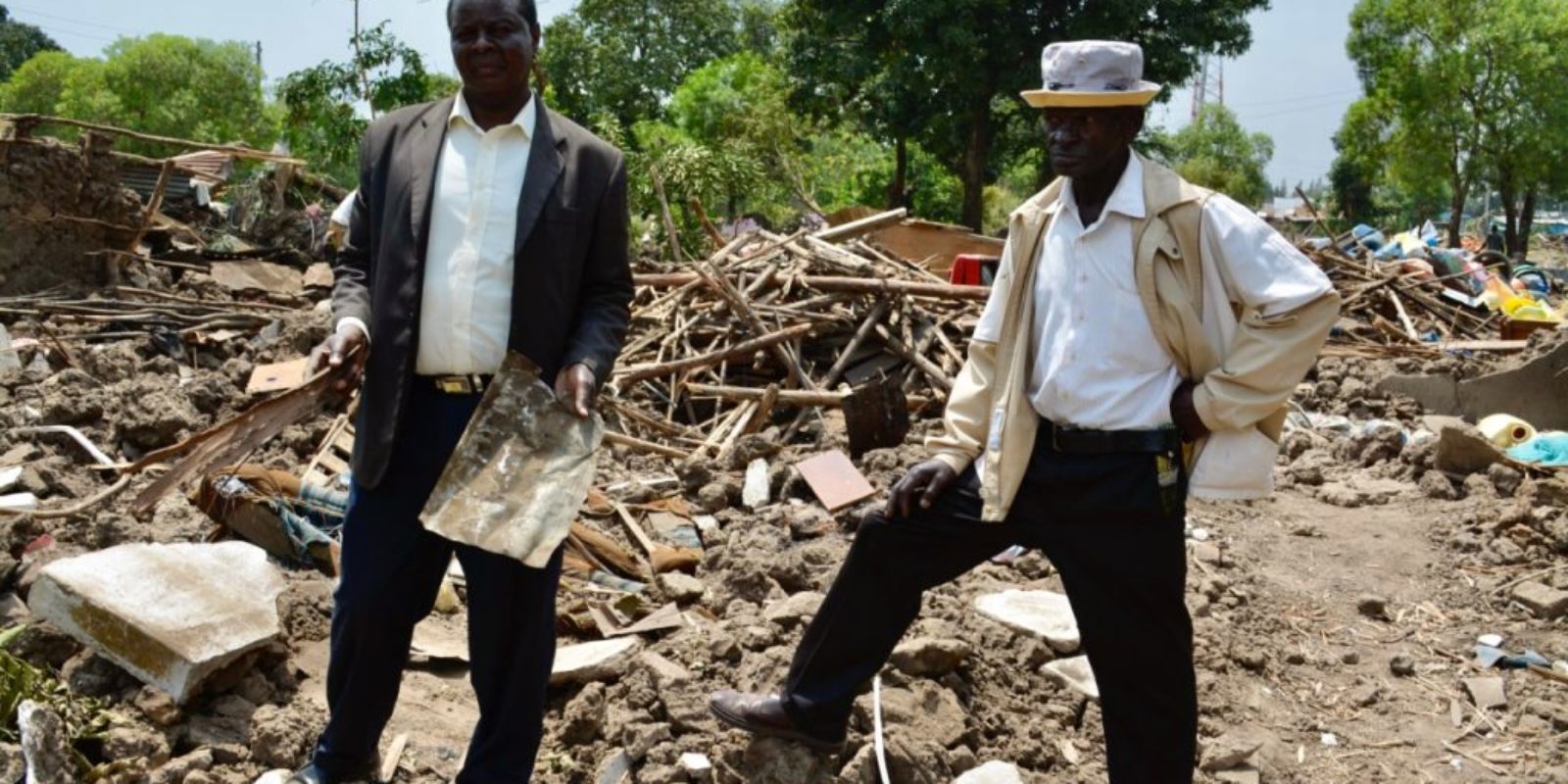Kenya has been the country of residence of 100.000 Nubians for decades, but they have never been recognized by local authorities, rendering them stateless ever since. As a result, the Nubian people have been a target of discrimination and oppression for generations, with the violent eviction of 3.500 people from their homes as a recent result. The Kibos Cooperation and Development Society (KCDS) mobilizes the evicted community and demands an immediate solution for the inhumane living conditions they currently have to endure.
ACTION • Evicted Nubian community fights for landownership in Kenya

A community of 3.500 Nubians in the Kenyan regio Kibos has been violently evicted from their place of residence with teargas and bulldozers by armed police of the Kenya Railways Corporation (KRC). Since then, the community has been living in inhumane conditions and are facing human rights violations on a daily basis.
€ 900
donate nowBecause of the renovation and construction of railway tracks around the city of Kisumu, the Kenya Railways Corporation (KRC) has evicted the community, without prior notice, with teargas and bulldozers. On the piece of land they inhabited for over 83 years, about 500 homes and a mosque were destroyed, leaving one child dead under the debris. Since the eviction, the community has been living in makeshift tents, having to deal with inhumane living conditions on a daily basis, without protection against diseases like cholera and COVID-19, and without food, drugs, electricity, or adequate sanitary facilities.
Evicting communities that reside on public land to make way for developments is a common issue in Kenya. After an appeal from Amnesty International in May 2020, Kenya issued a presidential moratorium to prevent evictions during the COVID-19 pandemic. The eviction of the Nubian community in Kibos is a direct violation of this act. Next to that, the KRC executed the eviction in disregard to the Environment and Land Court of Kisumu to refrain from conducting evictions until the matter is heard in court.
The Kibos Cooperation and Development Society (KCDS) fights against these violations of human rights and mobilizes the evicted community to raise their voices. They demand landownership with guaranteed security of tenure, an immediate solution to the inhumane living conditions in the camps, and compensation for the suffered damages. The right to housing is an international human right and, especially during a pandemic, can mean the difference between life and death.
Image: Amnesty International. Kenya: Residents of Kibos in Kisumu County salvage their properties after their houses were demolished by the Kenya Railways.
Help the KCDS to mobilize their community and demand landownership!
Make a donation
Support Het Actiefonds with 10 euros a month and make actions happen worldwide
donate now
